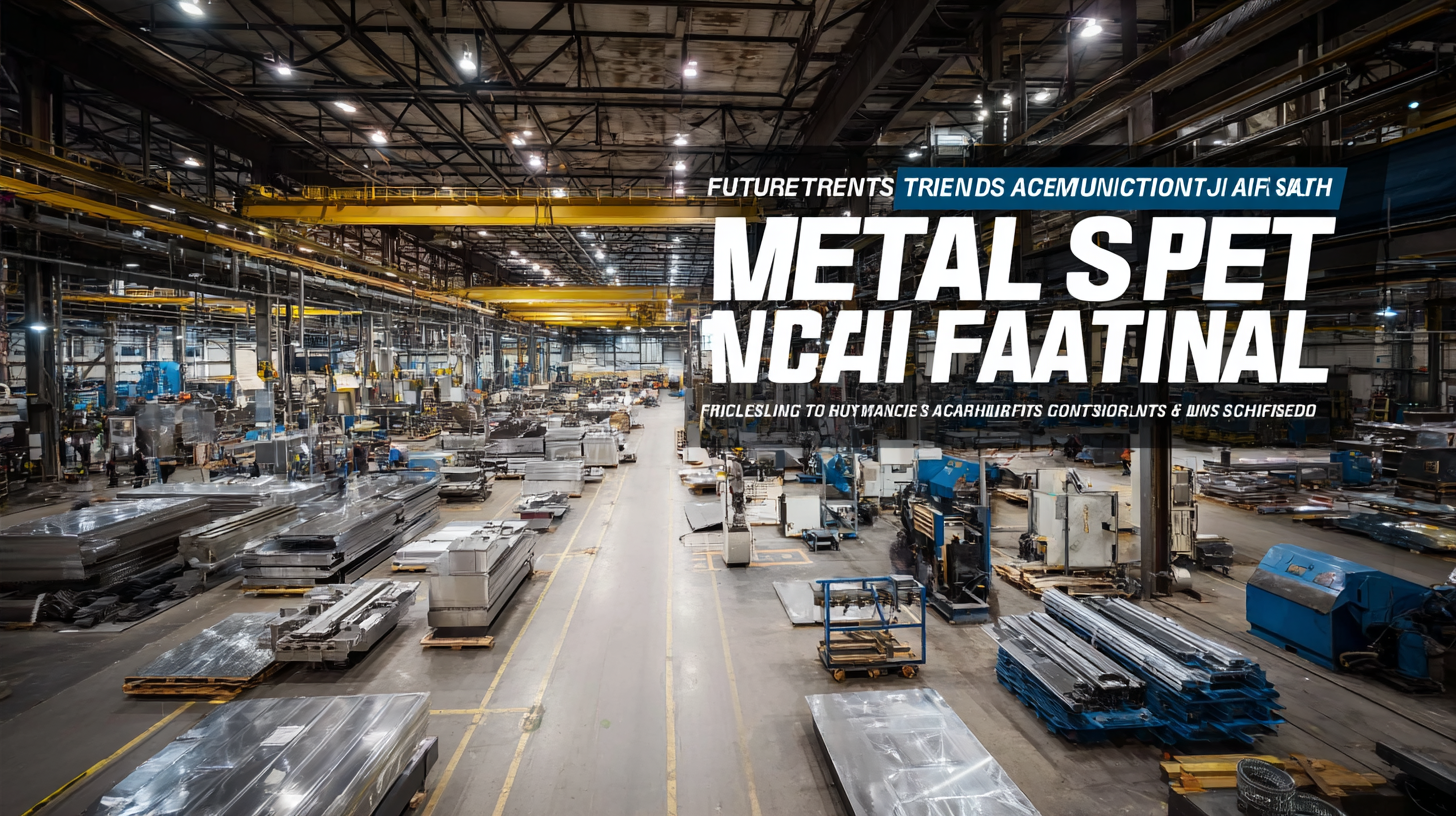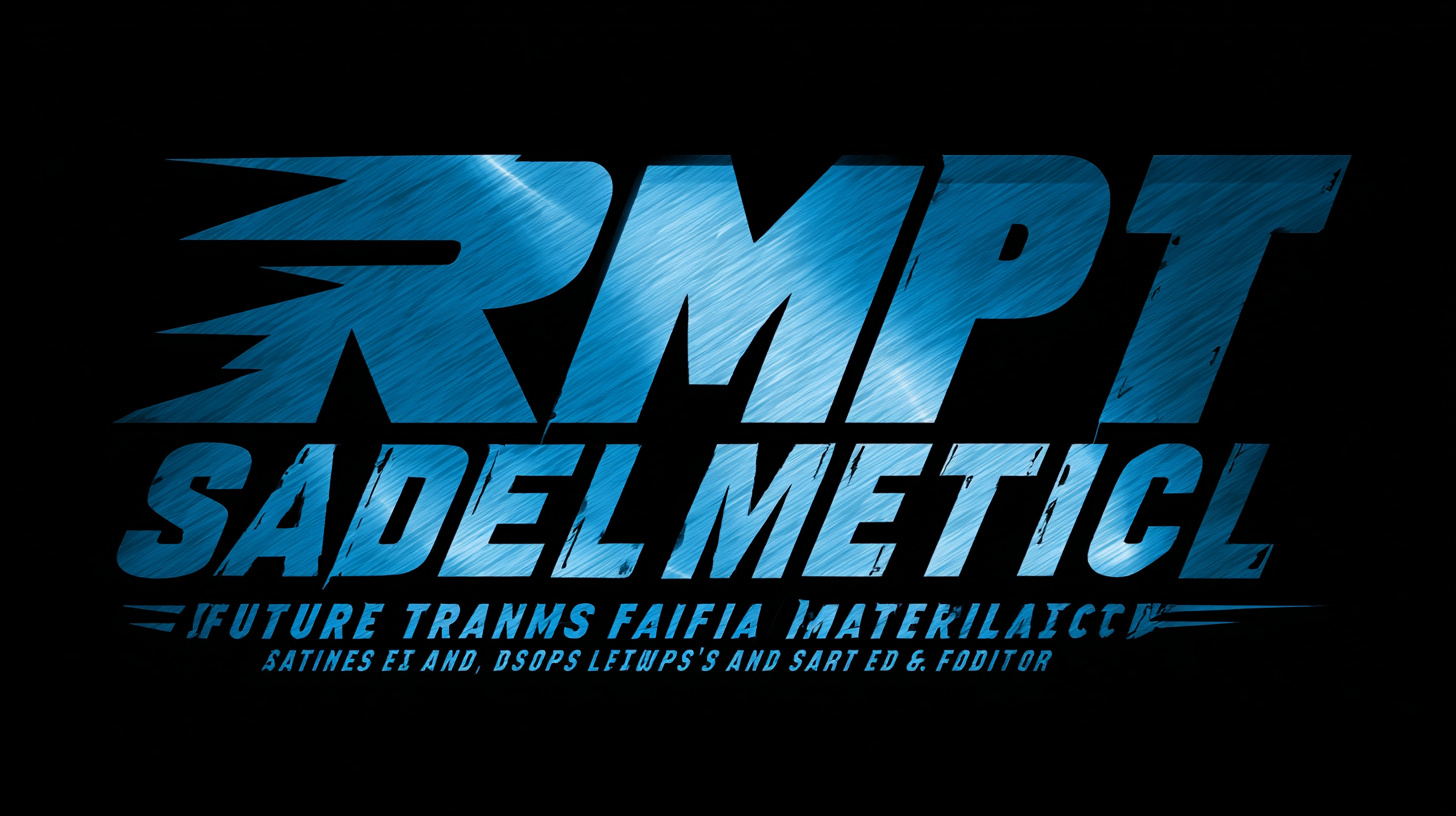
 In the fast-evolving landscape of manufacturing,
"rapid sheet metal fabrication" stands out as a game-changer,
offering businesses unparalleled efficiency and adaptability. As industries increasingly demand quick turnaround
times without compromising quality, this method not only meets these expectations but also enhances
cost efficiency significantly. However, to fully capitalize on the benefits of
rapid sheet metal fabrication, understanding the complexities of industry standards and import-export certifications is essential.
In the fast-evolving landscape of manufacturing,
"rapid sheet metal fabrication" stands out as a game-changer,
offering businesses unparalleled efficiency and adaptability. As industries increasingly demand quick turnaround
times without compromising quality, this method not only meets these expectations but also enhances
cost efficiency significantly. However, to fully capitalize on the benefits of
rapid sheet metal fabrication, understanding the complexities of industry standards and import-export certifications is essential.
This blog will explore upcoming trends in this sector, emphasizing the importance of unmatched after-sales support and how adopting a systematic approach can streamline operations. Additionally, we will provide practical guidance on navigating certification requirements, ensuring a seamless integration of rapid sheet metal fabrication into your manufacturing processes while maximizing economic advantages.
Emerging technologies are revolutionizing the landscape of rapid sheet metal fabrication, driving innovation and efficiency in manufacturing processes. One of the most significant advancements is the integration of automation and robotics, which streamlines production by reducing human error and increasing processing speeds.
 Automated systems can quickly adjust to design changes, enabling manufacturers to respond promptly to market demands without compromising quality. This adaptability not only enhances productivity but also contributes to significant cost savings.
Automated systems can quickly adjust to design changes, enabling manufacturers to respond promptly to market demands without compromising quality. This adaptability not only enhances productivity but also contributes to significant cost savings.
In addition to automation, the adoption of advanced software tools, such as CAD and CAM, is reshaping how designers and engineers collaborate on sheet metal projects. These tools facilitate precise modeling and simulation, allowing for better visualization of the final product before physical production begins. Furthermore, the rise of additive manufacturing techniques complements traditional methods, enabling the rapid prototyping of complex designs that would have been challenging to achieve with conventional processes. Together, these emerging technologies not only improve the efficiency of sheet metal fabrication but also enhance the overall quality and reliability of the final products, setting a new standard in the industry.
In the rapidly evolving landscape of sheet metal fabrication, automation plays a pivotal role in streamlining production processes. By integrating advanced technology such as robotic arms and CNC machines, manufacturers can significantly enhance their operational efficiency. Automation not only reduces the time taken to complete tasks but also minimizes human error, leading to increased accuracy in the final product. As companies embrace these innovations, they are better equipped to meet the growing demands of the industry while maintaining high quality standards.
**Tip:** Invest in training your workforce to operate automated systems effectively. A skilled team that understands both the technology and the production processes can maximize the benefits of automation and ensure seamless integration within the existing workflow.
Moreover, the implementation of automation in sheet metal fabrication promotes cost efficiency. Automated systems can dramatically reduce labor costs and operational overheads, allowing companies to allocate resources more effectively. This shift not only drives down production costs but also enables quicker turnaround times for orders, ultimately benefiting customers.
**Tip:** Regularly assess and upgrade your automation technology. Keeping up with the latest advancements can lead to further improvements in productivity and cost savings, ensuring your business stays competitive in the fast-paced fabrication market.

In the realm of rapid sheet metal fabrication, enhancing cost efficiency has become paramount as businesses seek to optimize their operations while maintaining high-quality outputs. According to a recent report by Smithers Pira, advancements in manufacturing technologies are expected to improve production speed by 30% in the next five years. This evolution is largely driven by innovative materials such as advanced aluminum composites and high-strength steel, which not only reduce material costs but also significantly decrease waste, leading to a more sustainable fabrication process.
Moreover, the integration of automation and smart manufacturing techniques plays a crucial role in enhancing cost efficiency. A survey conducted by the Manufacturing Institute revealed that companies implementing smart technologies could achieve up to a 20% reduction in labor costs and an overall increase in operational efficiency. This shift towards automation, coupled with the introduction of new materials, allows manufacturers to produce complex designs with greater precision while minimizing both time and expenditure. As the industry continues to evolve, staying ahead of these trends will be essential for competitive advantage and long-term sustainability.
In the rapidly evolving world of sheet metal fabrication, companies are constantly seeking ways to gain a competitive edge. One crucial factor that distinguishes leading players in the industry is the availability of expert after-sales support. Businesses that prioritize robust post-purchase assistance not only enhance customer satisfaction but also foster long-term loyalty. With complexities inherent in metal fabrication, having access to knowledgeable support staff can make a significant difference, ensuring clients maximize the value of their investments.
Moreover, exceptional after-sales support contributes to cost efficiency—a primary concern for many manufacturers. By providing timely maintenance, troubleshooting guidance, and tailored solutions, companies can minimize downtime and reduce the overall operational costs associated with sheet metal production. Customers equipped with expert advice are better positioned to navigate challenges, leading to improved productivity and reduced waste. This strategic focus on after-sales service transforms customer relationships from mere transactions into partnerships, enabling businesses to thrive in an increasingly competitive marketplace.
This chart illustrates the trends in cost efficiency and after-sales support satisfaction in rapid sheet metal fabrication from 2019 to 2023. The data shows a significant increase in both dimensions, highlighting the importance of expert after-sales support in building a competitive advantage.
In recent years, rapid sheet metal fabrication has transformed the manufacturing landscape, showcasing remarkable success stories that highlight its efficiency and productivity.
One notable case study comes from an automotive parts manufacturer that faced significant production delays. By integrating advanced CNC machinery and automated processes, the company reduced lead times by over 50%. The result was not only quicker turnarounds but also enhanced competition within the market. This success exemplifies how adopting rapid fabrication techniques can lead to substantial operational improvements.
Another inspiring story involves a tech startup specializing in custom electronic housings. Initially, the company struggled with prototyping costs and lengthy production schedules.
Through collaboration with a fabricator that offered robust after-sales support, they were able to streamline their processes. The fabricator not only provided tailored solutions but also facilitated quick adjustments based on real-time feedback. Ultimately, this partnership allowed the startup to scale production efficiently and maintain high-quality standards, proving that effective collaboration can drive innovation and cost savings in rapid sheet metal fabrication.

| Cookie | Duration | Description |
|---|---|---|
| cookielawinfo-checkbox-analytics | 11 months | This cookie is set by GDPR Cookie Consent plugin. The cookie is used to store the user consent for the cookies in the category "Analytics". |
| cookielawinfo-checkbox-functional | 11 months | The cookie is set by GDPR cookie consent to record the user consent for the cookies in the category "Functional". |
| cookielawinfo-checkbox-necessary | 11 months | This cookie is set by GDPR Cookie Consent plugin. The cookies is used to store the user consent for the cookies in the category "Necessary". |
| cookielawinfo-checkbox-others | 11 months | This cookie is set by GDPR Cookie Consent plugin. The cookie is used to store the user consent for the cookies in the category "Other. |
| cookielawinfo-checkbox-performance | 11 months | This cookie is set by GDPR Cookie Consent plugin. The cookie is used to store the user consent for the cookies in the category "Performance". |
| viewed_cookie_policy | 11 months | The cookie is set by the GDPR Cookie Consent plugin and is used to store whether or not user has consented to the use of cookies. It does not store any personal data. |

